Fritextsökning
Artiklar per år
Innehållstyper
-
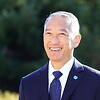
IVI’s Director General on establishing in Sweden: Will need up to 40 employees
The International Vaccine Institute, IVI, hopes to have its first staff on-site in Stockholm within a couple of months, says the institute’s Director General Jerome Kim in an interview with Life Science Sweden.
-
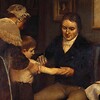
The first vaccine derived from cowpox
The British rural doctor could not forget the words of the peasant girl. Could that really be true? A couple of decades later, on 14 May 1796, he performed the world’s first smallpox vaccination, and a medical breakthrough had occurred.
-
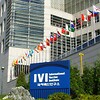
Now it’s settled: The International Vaccine Institute will be located in Stockholm
The International Vaccine Institute, IVI, is establishing itself outside South Korea for the first time. Last week, the Swedish Parliament ratified the agreement, which means that a branch of the institute will be located in Stockholm.
-
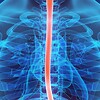
The first pharmaceutical for eosinophilic esophagitis approved in the U.S.
The U.S. Drug Administration has approved the drug Dupixent (dupilumab) to treat inflammation of the oesophagus of the type eosinophil esophagitis.
-

No demand for new Covid vaccine – “It will probably be discarded”
So far, just under 6 000 doses of the Covid vaccine from Novavax have been used in Sweden, leaving over 1.4 million doses in stock. “They will probably be discarded due to lack of demand in Sweden as well as globally,” says Sweden’s National Vaccine Coordinator Richard Bergström to Life Science Sweden.
-

Start-up developing ”digital twin” received award during the EIT Health Summit
A biotech company, a medtech company and a company in digital health were on the podium when the EIT Health Catapult awarded its winners.
-

Anna Törner: To kill your darlings
Hopes were high when Anna Törner and her colleague started a study on a dietary supplement that seemed unbelievably good. “Enthusiastically, we dreamed of exciting results and perhaps a publication in a high-impact journal,” she writes in a column.
-

Hello Angelica Loskog!
Life Science Sweden would like to know more about Angelica Loskog and interviews her about her life as a researcher.
-
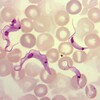
Noxious parasite forms hybrids and deceives the immune system
The small parasite Trypanosoma cruzi has a nasty ability to cause serious illness. Researchers at the Karolinska Institutet have now mapped its ability to deceive the immune system by forming new variants that are mixtures of different strains.
-

Investments worth 40 billion in the Öresund region – “A huge investment wave”
A new report reveals that medical companies in the Oresund region are investing like never before.
-

New rules for diagnostic products, but who will certify them? “An extreme shortage area”
In less than two weeks, new and stricter EU rules will enter into force for thousands of products used in important diagnoses of, among other things, cancer and Covid-19. However, not one single institute in the entire Nordic region is able to certify the diagnostics companies’ products according to the new regulations. “In the end, it risks affecting patients,” says Anna Lefèvre Skjöldebrand, CEO of Swedish Medtech.
-

Tougher competition as the Novo Nordisk Foundation broadens its programme
Søren Nedergaard has worked with innovation at the Danish Government Offices and the University of Copenhagen. Today, he is COO of the Novo Nordisk Foundation, which has recently broadened its programme for leading innovators in medical research to apply to the entire Nordic region.
-

Paolo Macchiarini in court – “The sole intent was to cure”
Paolo Macchiarini’s surgical procedure was illegal, life-threatening and caused severe and prolonged suffering to patients the prosecution claimed when the trial against the Italian surgeon began on Wednesday last week.
-

We will now publish more news in English – and offer yet another newsletter
Starting next week, Life Science Sweden will begin offering a newsletter entirely in English.
-
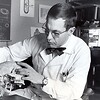
When carelessness, forgetfulness and coincidence become the researcher’s best friend
Forgetfulness, coincidence and a stroke of luck hardly make up a fruitful method of serious research. Or do they? Actually, a number of important medical advances have come about thanks to completely random incidents and the open-mindedness of scientists who were ready to think outside the box.
-
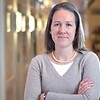
Lucy Robertshaw: Are we in the perfect storm?
“Is there a perfect storm on the horizon again as elective surgeries were cancelled due to patients being admitted with Covid-19? We now have a long backlog of people who are presenting with chronic diseases that need to access healthcare again”, writes Lucy Robertshaw in a column.
-

Studie: Covidvaccin till gravida ökar inte risken för komplikationer för barnet
En stor registerstudie från Karolinska institutet pekar på att vaccin mot covid-19 under graviditet inte medför någon ökad risk för tidig födsel, tillväxthämning eller andra komplikationer för det nyfödda barnet.
-

Alzheimersbolagets vd: "Vi befinner oss i ett mycket spännande stadium"
När Astra Zeneca lade ned sin alzheimersforskning klev Alzecure in. Nu har Huddingebolaget flera projekt inom alzheimers och smärta. Hör vd Martin Jönsson berätta om bolagets forskning i videon.
-

This is how Anette Steenberg will put Medicon Valley on the world map
Anette Steenberg has been CEO of the Swedish-Danish life science cluster Medicon Valley Alliance since 1 November last year. Life Science Sweden called her to ask about her visions and the challenges of merging the worlds of Swedish and Danish life science.
-

Björn Ursing: Physicians new role in AI driven healthcare
”AI could be the key we need for tomorrow’s healthcare, but it is not a stand-alone tool”, writes Björn Ursing in a column about how the role for physicians changes in the era of AI.
-
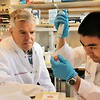
Elicera develops CAR-T against solid tumours – may become the first in the world
Today, there are five EU-approved CAR-T therapies, all focused on different types of blood cancer, but no one has yet succeeded in making the method work against solid tumours. At Gothenburg-based Elicera, they are working relentlessly to succeed in that field as well. “It is the largest field, and the potential is enormous,” says the company’s CEO Jamal El-Mosleh.
-
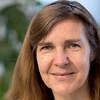
CAR-T therapies give continued hope: “Almost half of the patients have become disease-free”
When the first CAR-T therapies appeared, hopes were raised for the effective treatment for critically ill cancer patients. After a somewhat sluggish start, about 90 patients in Sweden have now been treated with this method. “Almost half of them have become disease-free, at least of those treated with Yescarta, which are the ones I know best,” says Gunilla Enblad, Chairman of the national working group for CAR-T treatment.
-

Samuel Lagercrantz: Immunotherapy against cancer is still in its early stages
For more than 100 years, researchers have tried to target the body’s own immune system to fight cancer cells. They have occasionally been laughed at and ridiculed by the medical establishment. However, from our perspective today, we can sum it up with the saying: He who laughs last laughs best, writes Samuel Lagercrantz in an editorial.
-

Björn Arvidsson: ”We need to change perspective”
If you say “life science” to a person on the street and ask them to explain what it is, you will probably get no good answer. The same question to your network will generate as many versions as the people you ask. Most likely, we will miss many opportunities with our lack of communication, writes Björn Arvidsson in a column.